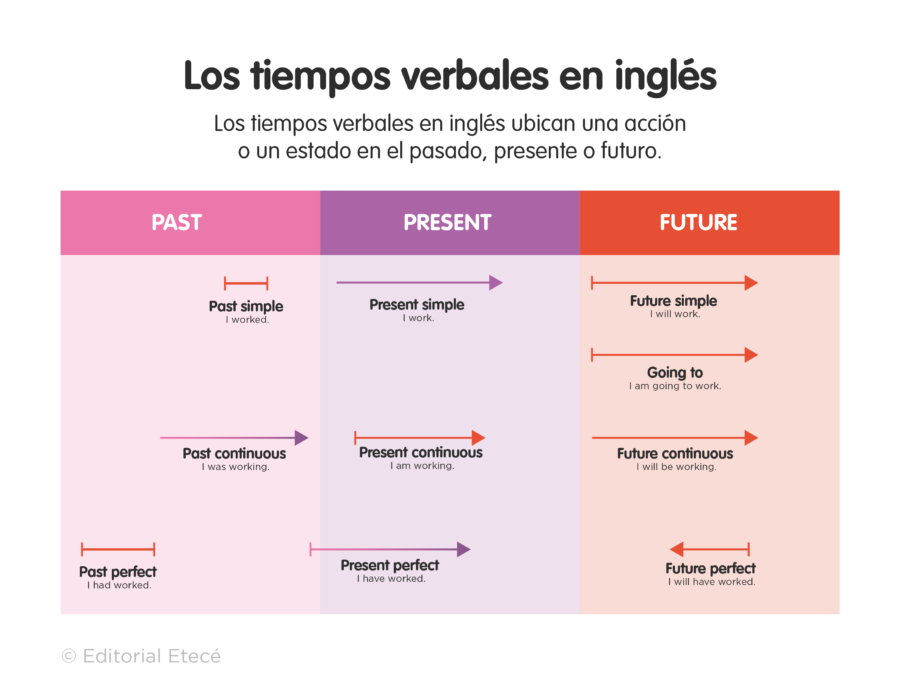Índice
Will es un verbo modal (no se conjuga) que se utiliza junto a un verbo en infinitivo para formar el futuro simple en inglés. Por ejemplo: The report will be ready in a minute. / El informe estará listo en un minuto.
El negativo de will es will not (won’t). Por ejemplo: They won’t finish the building by the end of the month. / No terminarán el edificio para fin de mes.
Will y won’t, al igual que todos los verbos modales, son invariables, es decir, su conjugación no varía de acuerdo a la persona. Por ejemplo: I will arrive in an hour. / He will arrive in an hour.
Will y won’t no tienen traducción al español.
‘ll es la forma contraída de will y won’t es la forma contraída de will not.
¿Cómo se forma la estructura con will?
Sujeto + will / won’t + infinitivo
Por ejemplo: I will be late for dinner tonight. / Llegaré tarde para la cena esta noche.
¿Para qué se usa will?
Will (future simple) se utiliza para:
- Opiniones personales sobre el futuro. En general, luego de verbos como think, believe, guess. Por ejemplo: I think that Real Madrid will win the match. / Creo que el Real Madrid ganará el partido.
- Reacciones espontáneas. Por ejemplo: Don’t worry; I’ll clean it up. / No te preocupes; lo limpiaré yo.
- Acciones futuras (que no estén agendadas ni expresen objetivos). Por ejemplo: The new hotel will be the tallest in Las Vegas. / El nuevo hotel será el más alto en Las Vegas.
- Condicional tipo 1. En la cláusula de resultado (y no en la de condición con if). Por ejemplo: If it clears up, I’ll go running in the park. / Si mejora el tiempo, iré a correr al parque.
¿Cómo se forma la pregunta con will?
Will / Won’t + sujeto + infinitivo + ?
Por ejemplo: Will it be cold tomorrow? Yes, it will. / No, it won’t.
Atención: Si se quiere obtener información como respuesta (y no sí o no), se agrega una palabra wh- (what, when, where, how, why, which, who) antes de will / won’t. Por ejemplo: Where will they place the statue? / ¿Dónde colocarán la estatua?
Ejemplos de oraciones con will
- What will he say next?
¿Qué dirá después? - I think people won’t vote for him.
Creo que la gente no votará por él. - I’ll put you through right away.
Lo comunicaré enseguida. - It will snow next week.
Nevará la semana que viene. - Will she come with you to my wedding?
¿Ella vendrá contigo a mi casamiento? - We will arrive at 9 p.m.
Llegaremos a las 9 p.m. - I will go with you in that case.
Iré contigo en ese caso. - I’ll get you an aspirin for your headache.
Te traeré una aspirina para tu dolor de cabeza. - Jason won’t run in the marathon scheduled for July.
Jason no correrá en la maratón prevista para julio. - Will Emma be at the meeting?
¿Emma estará en la reunión? - I promise I will help you as much as I can.
Prometo que te ayudará tanto como pueda. - His son will go to university when he grows up.
Su hijo irá a la universidad cuando crezca. - I´m sure that Peter will call you.
Estoy seguro de que Peter te llamará. - I heard that it won’t rain this evening.
Escuché que no lloverá esta noche. - We won’t start the movie without you.
No comenzaremos la película sin ti. - I think my parents will buy a new house.
Creo que mis padres comprarán una nueva casa. - The children will clear up all this mess.
Los niños ordenarán todo este desorden. - If you study, you will pass the test.
Si estudias, pasarás el examen. - When will you tell the good news to your family?
¿Cuándo le contarás la buena noticia a tu familia? - They won’t dance in the contest until they are officially designated.
Ellos no bailarán en la competencia hasta que estén oficialmente designados.

Sigue con:
¿Te fue útil esta información?
Sí No¡Genial! gracias por visitarnos :)